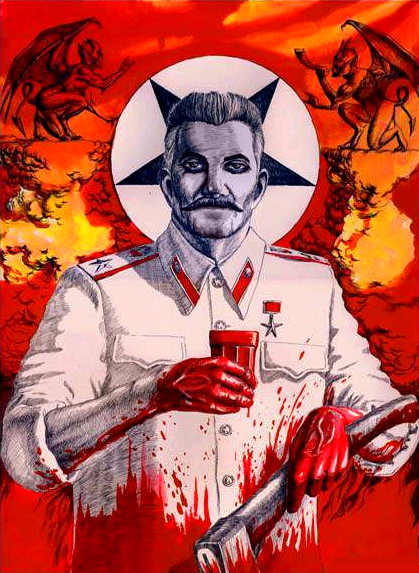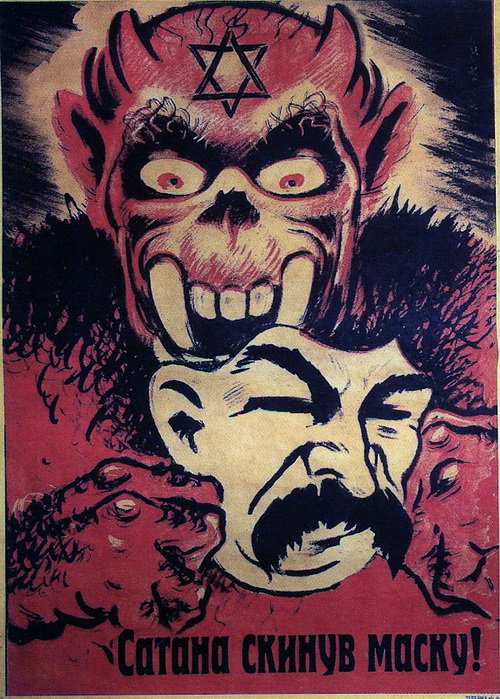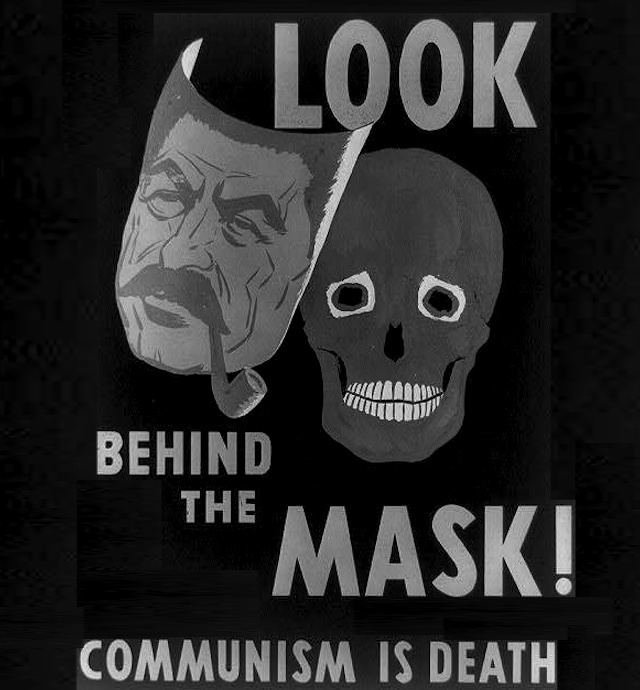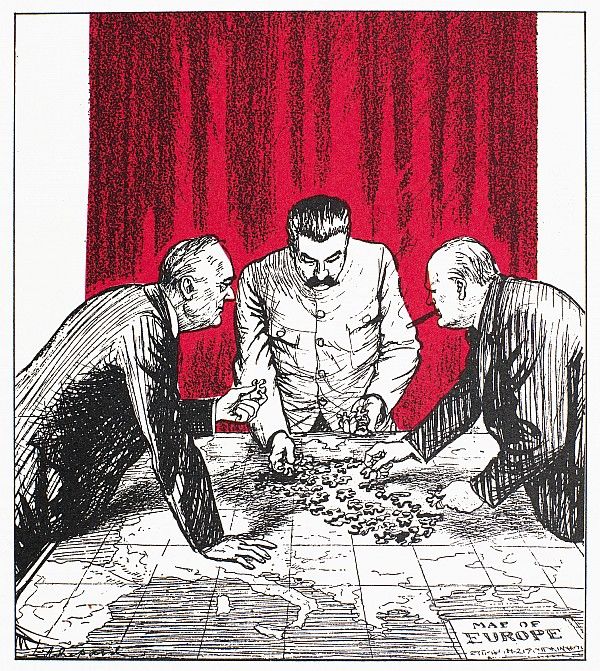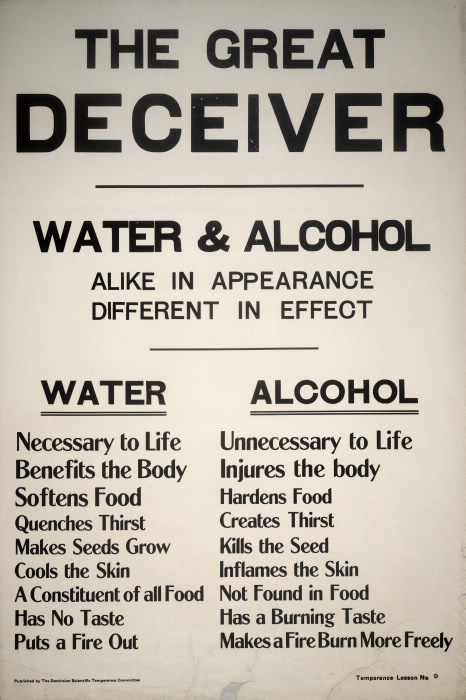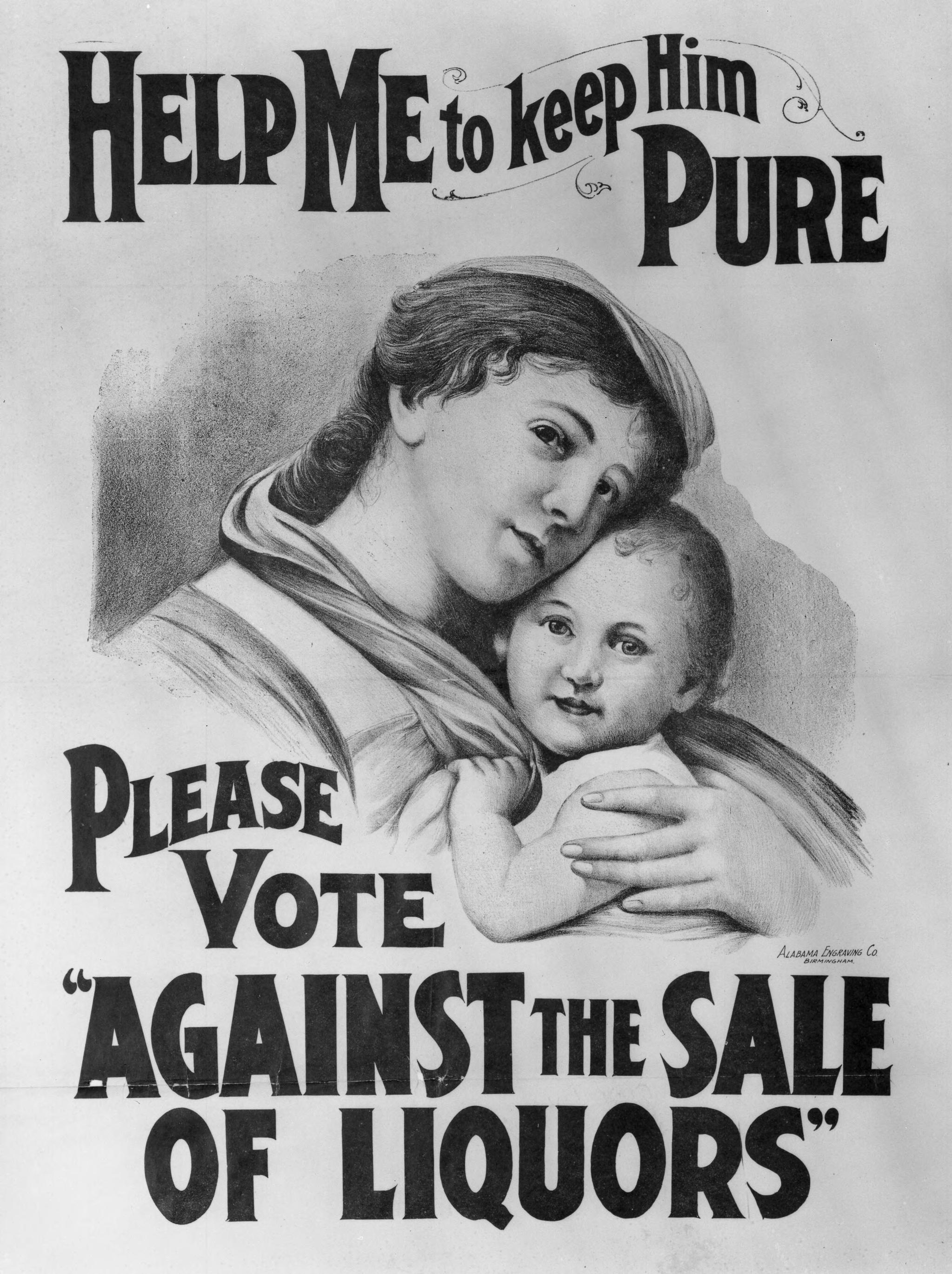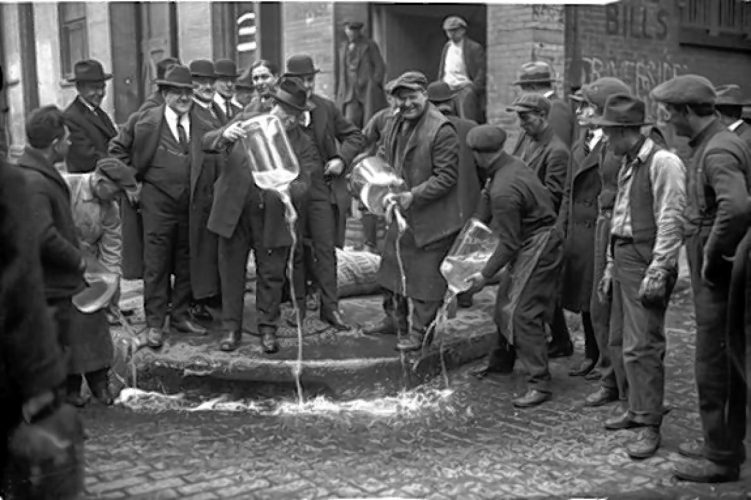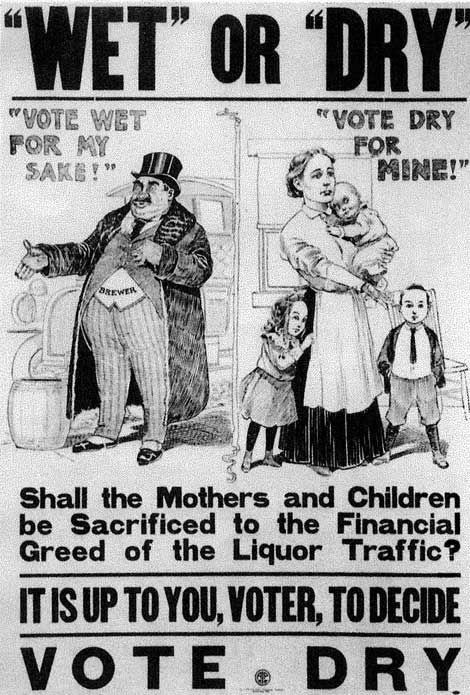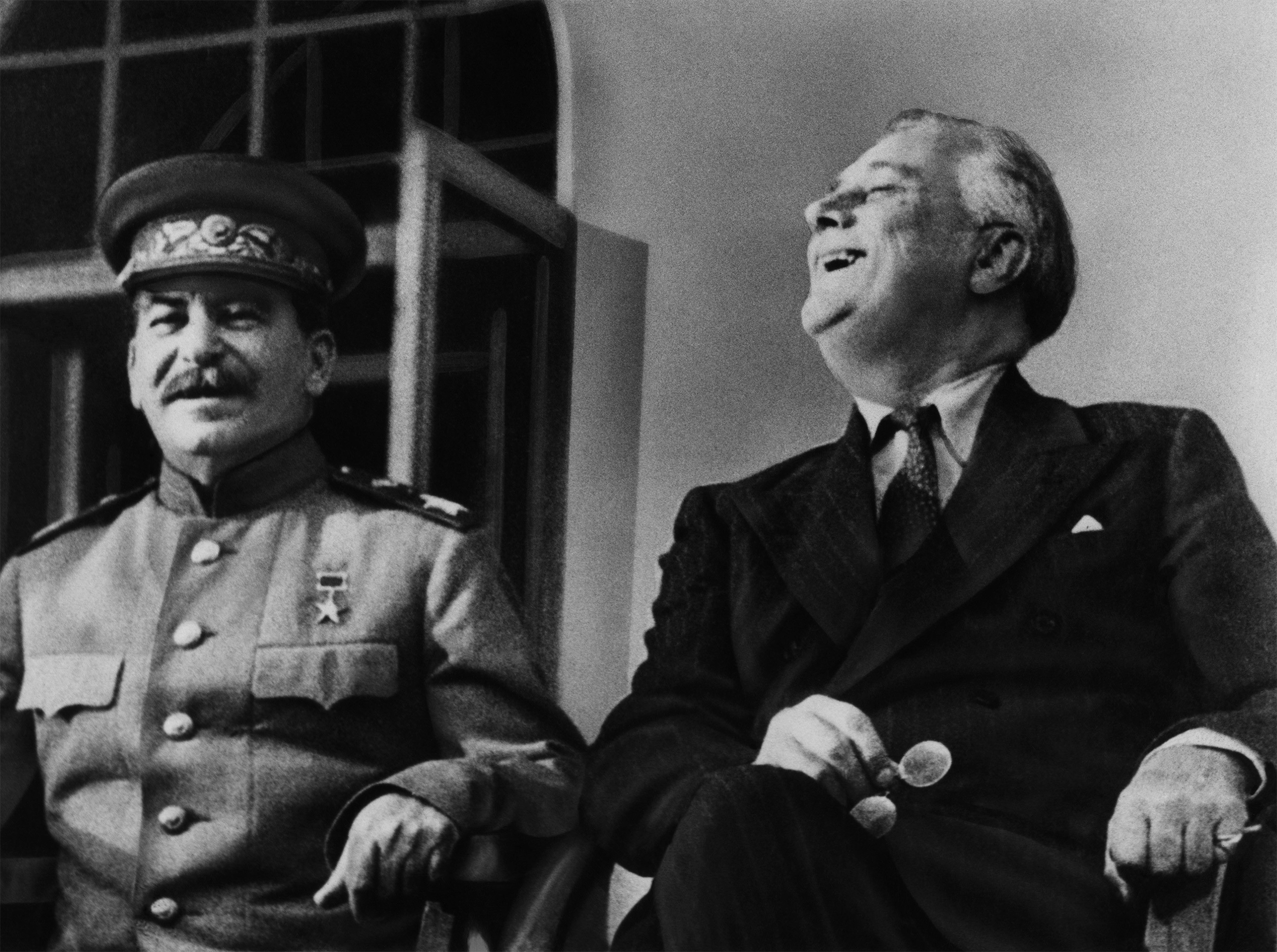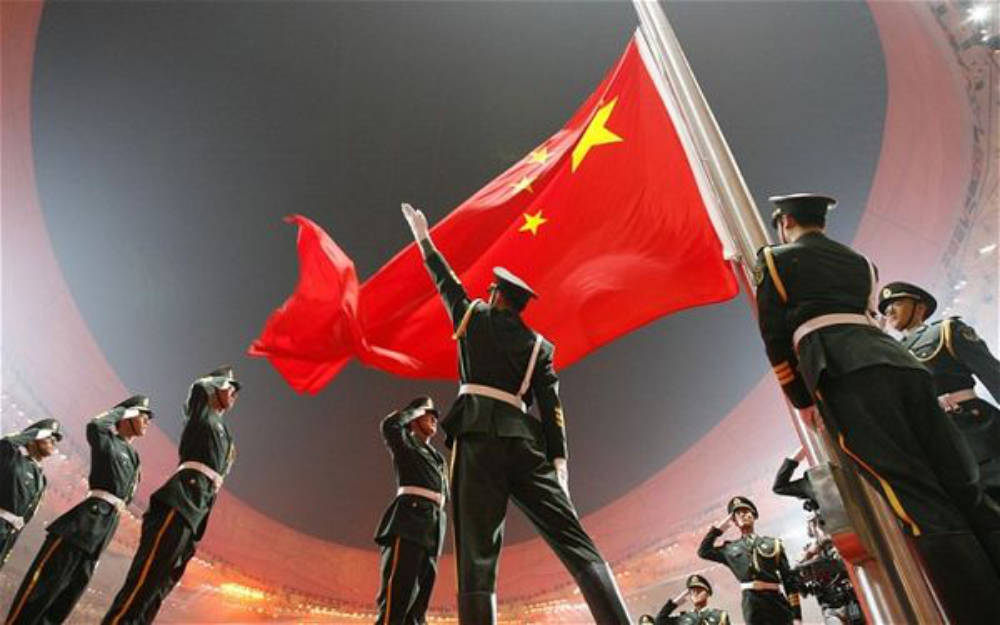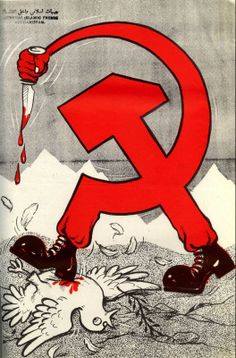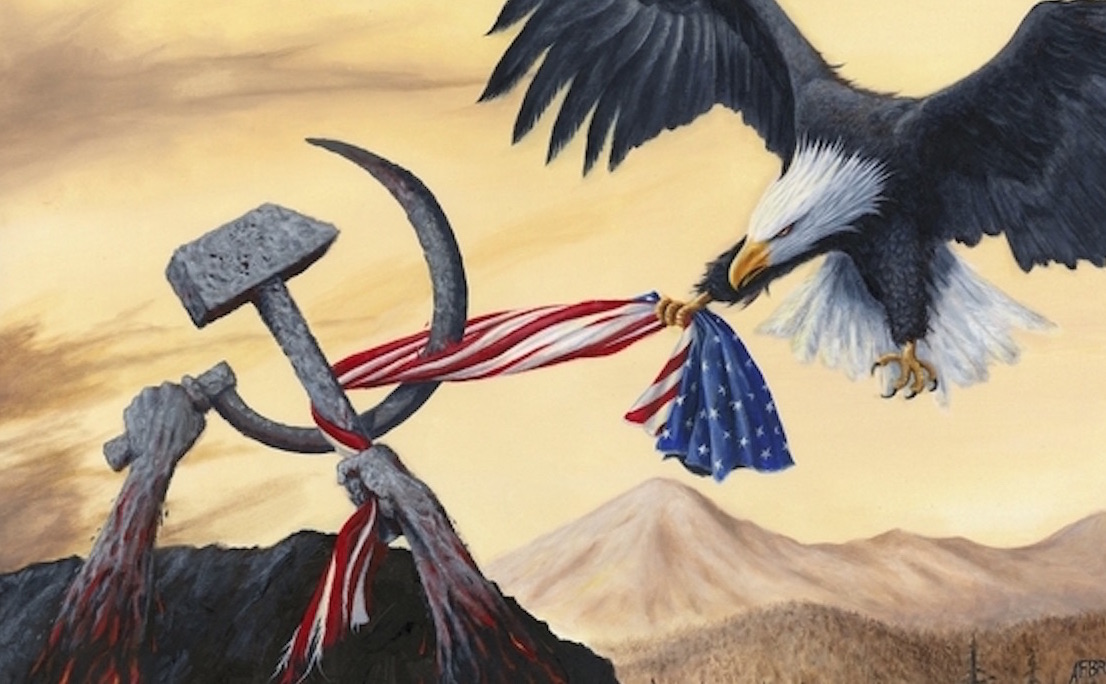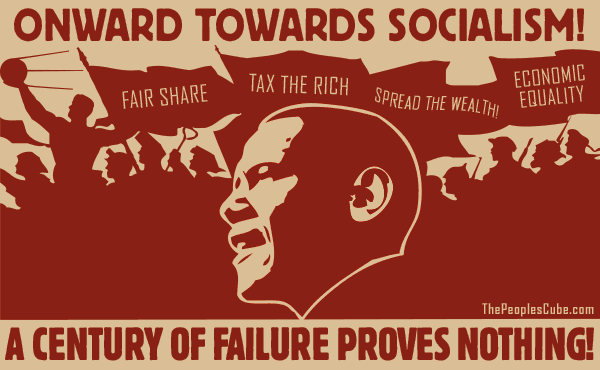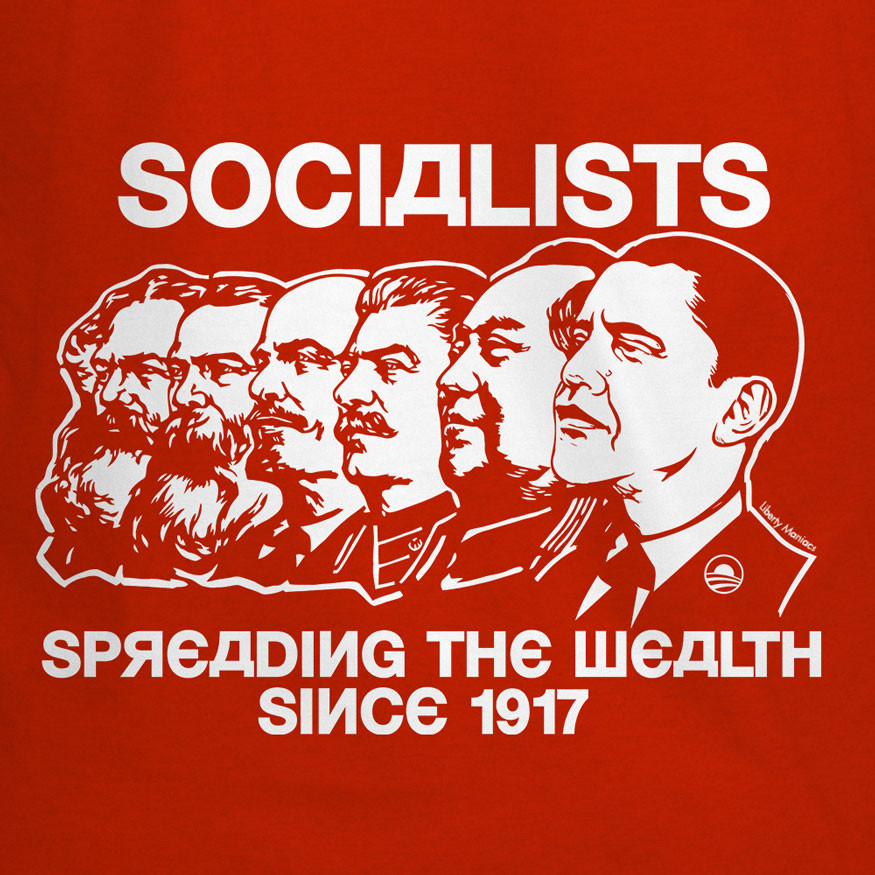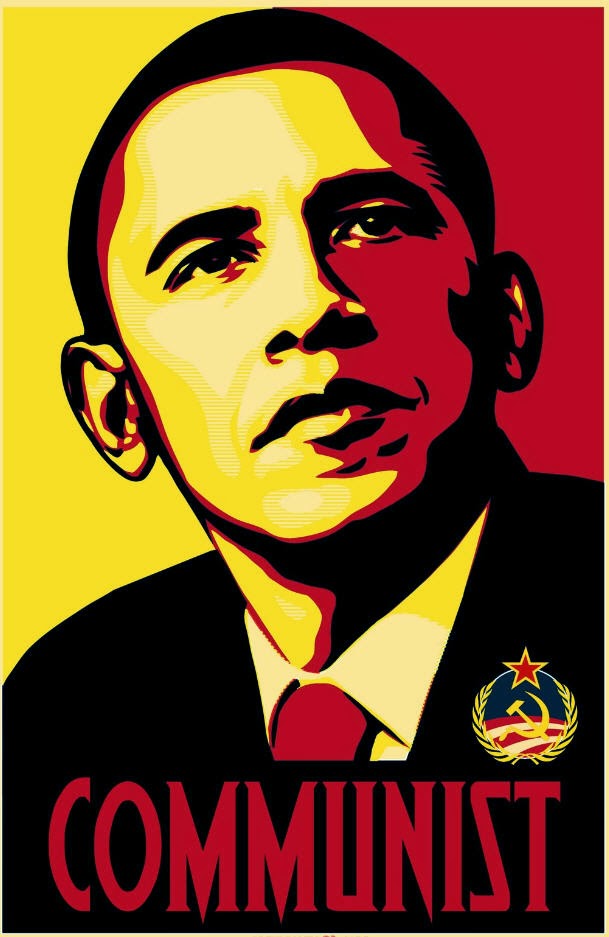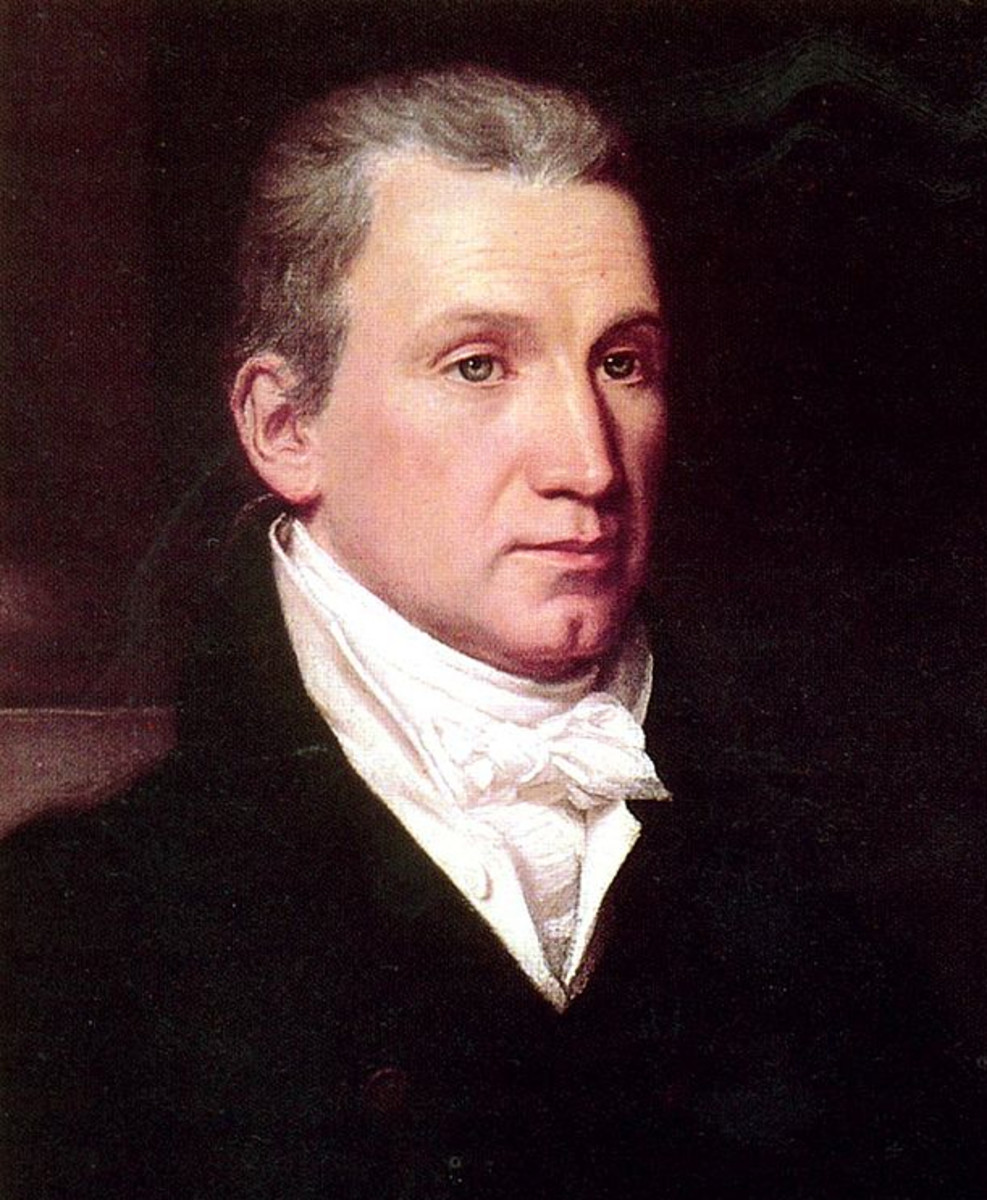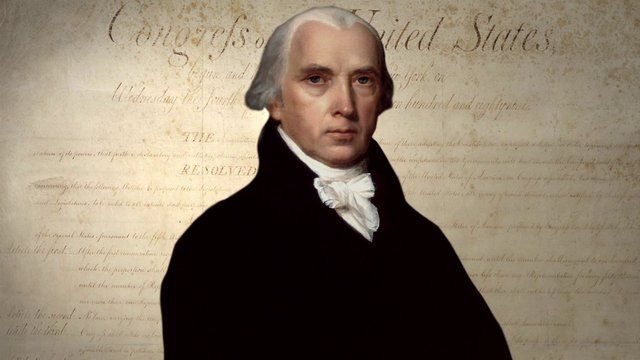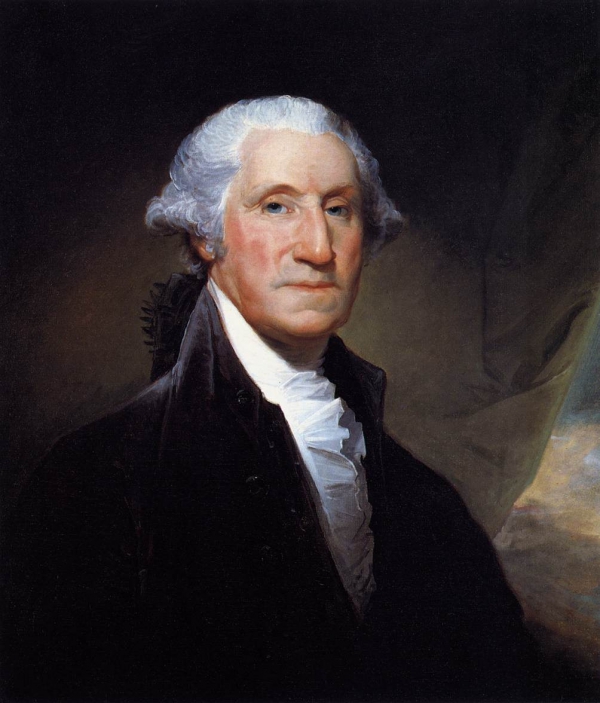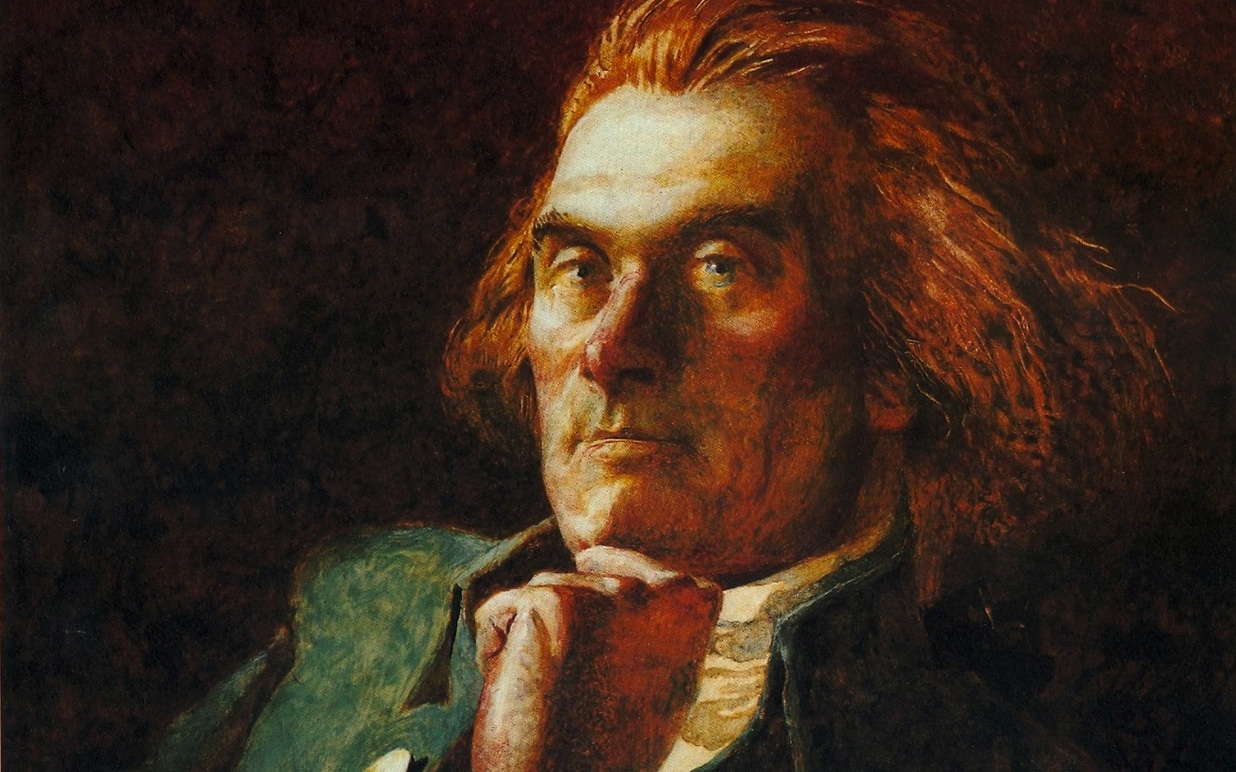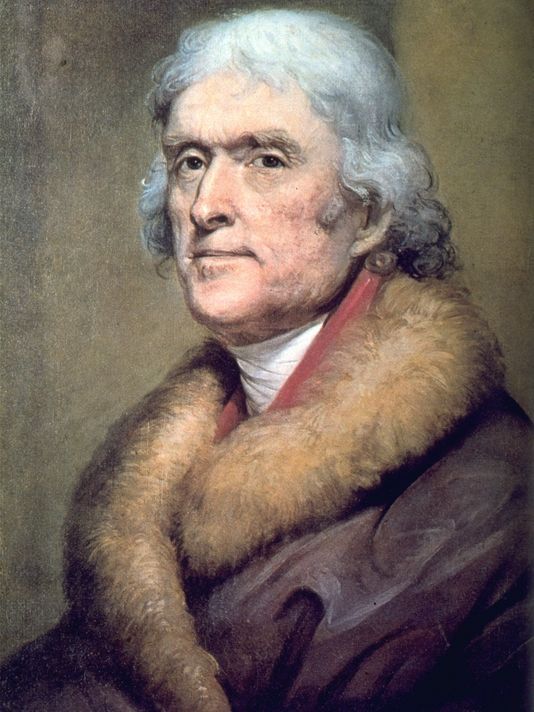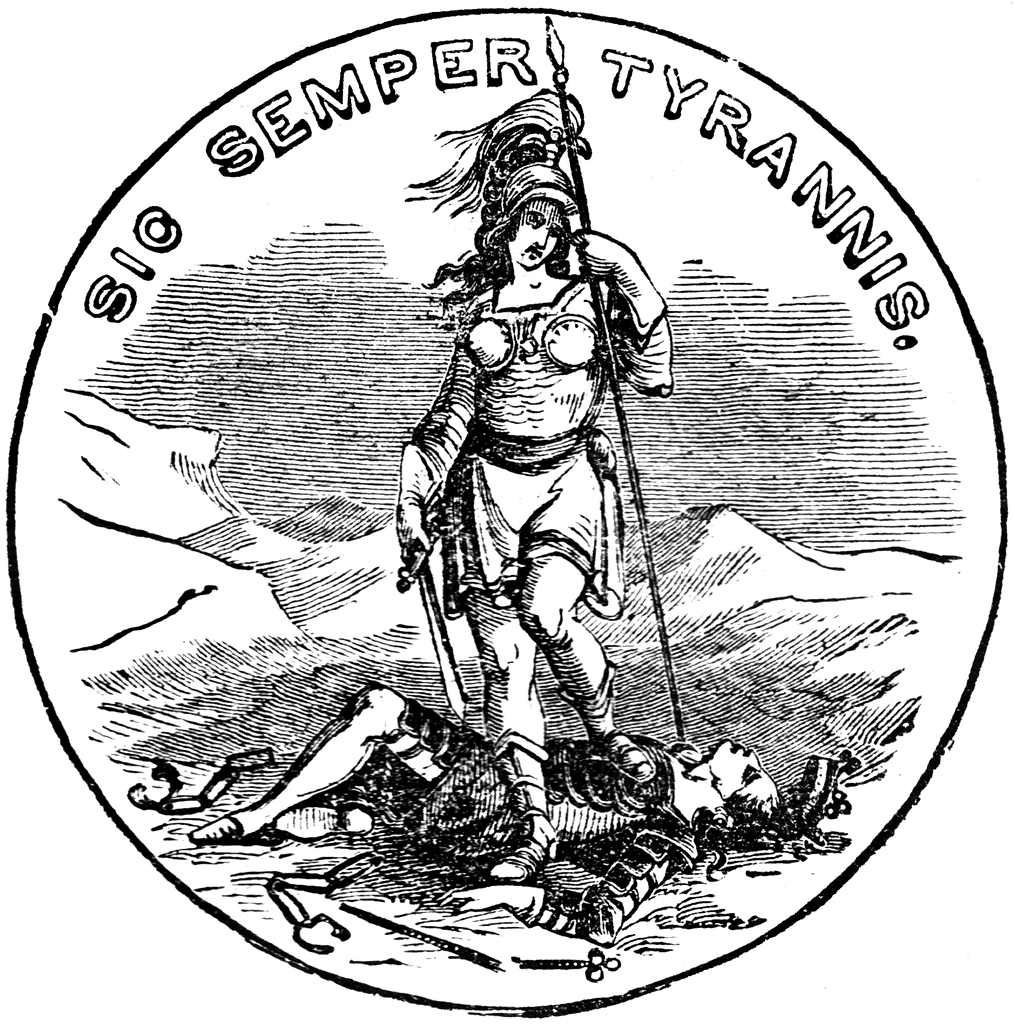The deadly attack on Pearl Harbor on December 7, 1941 was a quintessential false-flag event known about ahead of time and permitted to unfold by the evil Establishment that rules in Washington, D.C. Despite the lies of court historians and biased talking heads on the radio, FDR absolutely did have foreknowledge of the Japanese attack on our military men in Hawaii and allowed it to happen to fulfill his sick desire to thrust our nation into a war that our People did not want to be involved in. This is conspiracy fact, not conspiracy theory. This article will not dive too deeply into the mass of material proving foreknowledge, though I will reference the basics and refer you to some excellent sources. I will, rather, focus on two of the reasons the Japanese felt they needed to fight back against U.S. aggression in order to safeguard their nation.
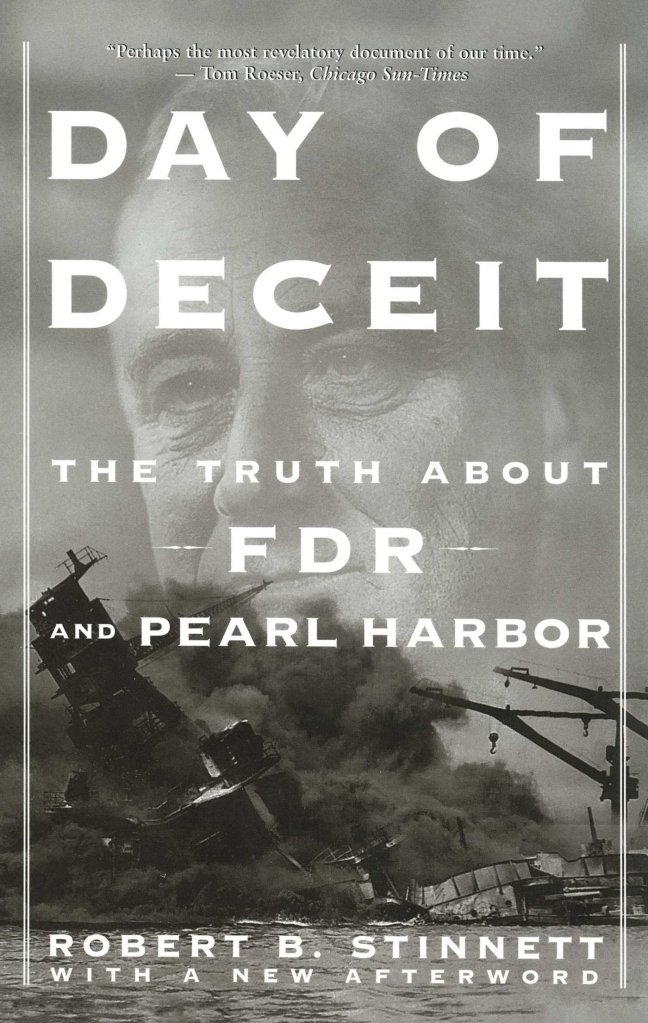
The late Robert B. Stinnett wrote in his foundational book Day of Deceit: The Truth about FDR and Pearl Harbor that not only did President Franklin D. Roosevelt have foreknowledge of the Japanese attack on Pearl Harbor, but he was part of a small group who initiated an 8-point plan to provoke war with Japan. Stinnett outlined the plan in great detail, including this overview:
“Lieutenant Commander McCollum’s five-page memorandum of October 1940 (hereafter referred to as the eight-action memo) pull forward a startling plan—a plan intended to engineer a situation that would mobilize a reluctant America into joining Britain’s struggle against the German armed forces then overrunning Europe. Its eight actions called for virtually inciting a Japanese attack on American ground, air, and naval forces in Hawaii, as well as on British and Dutch colonial outposts in the Pacific region.
“Opinion polls in the summer of 1940 indicated that a majority of Americans did not want the country involved in Europe’s wars. Yet FDR’s military and Stale Department leaders agreed that a victorious Nazi Germany would threaten the national security of the United States. They fell that Americans needed a call to action.
“McCollum would be an essential part of this plan. His code name was F-2. He oversaw the routing of communications intelligence to FDR from early 1940 to December 7, 1941, and provided the President with intelligence reports on Japanese military and diplomatic strategy. Every intercepted and decoded Japanese military and diplomatic report destined for the White House went through the Far East Asia section of ONI, which he oversaw. The section served as a clearinghouse for all categories of intelligence reports, not only on Japan but on all the other nations of eastern Asia.
“Each report prepared by McCollum for the President was based on radio intercepts gathered and decoded by a worldwide network of American military cryptographers and radio intercept operators. McCollum’s office was an element of Station US. a secret American cryptographic center located at the main naval headquarters at 18th Street and Constitution Avenue N.W. about four blocks from the White House.
“Few people in America’s government or military knew as much about Japan’s activities and intentions as Lieutenant Commander Arthur H. McCollum. He felt that war with Japan was inevitable and that the United States should provoke it at a time which suited US interests. In his October 1940 memorandum McCollum advocated eight actions that he predicted would lead to a Japanese attack on the United States:
“A. Make an arrangement with Britain for the use of British bases in the Pacific, particularly Singapore.
B. Make an arrangement with Holland for the use of base facilities and acquisition of supplies in the Dutch East Indies [now Indonesia].
C. Give all possible aid to the Chinese government of Chiang Kai-shek.
D. Send a division of long-range heavy cruisers to the Orient, Philippines, or Singapore.
E. Send two divisions of submarines to the Orient.
F. Keep the main strength of the US Fleet, now in the Pacific, in the vicinity of the Hawaiian Islands.
G. Insist that the Dutch refuse to grant Japanese demands for undue economic concessions, particularly oil.
H. Completely embargo all trade with Japan, in collaboration with a similar embargo imposed by the British Empire” (Robert B. Stinnett, Day of Deceit: The Truth about FDR and Pearl Harbor, 7-8).
Look carefully at these recommendations and think of the audacity – the pure evil – of concocting such a plan; a plan that would deliberately drag tens of millions of people to the hell of war. Each move was calculated to hem in the Japanese in the Pacific, hurt the Japanese economy, isolate Japan from her allies and resources, aid Japan’s enemies at a time of war (which itself is a violation of international law and an act of war), and place American servicemen directly in harm’s way as a sort of bait or sacrifice.
Of point four of FDR’s perverse plan, Stinnett wrote:
“Roosevelt’s “fingerprints” can be found on each of McCollum’s proposals. One of the most shocking was Action D, the deliberate deployment of American warships within or adjacent to the territorial waters of Japan.11 During secret White House meetings, Roosevelt personally took charge of Action D. He called the provocations “pop-up” cruises. “I just want them to keep popping up here and there and keep the Japs guessing. I don’t mind losing one or two cruisers, but do not take a chance on losing five or six.” Admiral Husband Kimmel, the Pacific Fleet commander, objected to the pop-up cruises, saying: “It is ill-advised and will result in war if we make this move.” . . . .
“From March through July 1941, White House records show that FDR ignored international law and dispatched naval task groups into Japanese waters on three such pop-up cruises. . . .
“Action D was very risky and could have resulted in a loss of American lives approaching that of Pearl Harbor. In the end, however, no shots were fired during the cruises. It would take not just one, but all eight of McCollum’s proposals to accomplish that” (Stinnett, Day of Deceit, 9-10).

To read all about FDR’s duplicity in deliberately and willfully provoking Japan in such a way as to bring an attack on American military men, read Day of Deceit by Robert Stinnett. Additionally, read Operation Snow: How a Soviet Mole in FDR’s White House Triggered Pearl Harbor by John Koster. Also, read James Perloff’s superb research in his “Pearl Harbor: Roosevelt’s 9/11.” Finally, see these links for additional information to explore: Link 1, Link 2, Link 3, Link 4, Link 5, Link 6.
I now cover two of the reasons the Japanese themselves gave for opposing, and ultimately attacking, the United States: 1) U.S. economic warfare against Japan; and 2) the imminent threat of communism.
U.S. Economic Warfare Against Japan
In his book Bankrupting the Enemy: The U.S. Financial Siege of Japan Before Pearl Harbor, author Edward S. Miller presented evidence leading the careful reader to a straightforward thesis: The United States compelled Japan to war through economic strangulation. Miller began his book by contextualizing Japan’s decision to go to war:
“The judgment of history is that Japan attacked Pearl Harbor and launched the Pacific War to thwart American resistance to its designs of imperial conquest in East Asia. U.S. opposition included diplomatic pressure, military preparations, and, above all, economic sanctions. Historians have emphasized the de facto embargo of oil as the most deadly sanction because Japan’s navy and army depended on U.S. exports of fuel, a situation the military leaders effectively in control of Japanese policy perceived as an intolerable weakness. But the U.S. action of 26 July 1941 was not just a trade embargo. It was an emasculation of Japan’s laboriously accumulated international money reserves, imposed by President Franklin D. Roosevelt by invoking an obscure 1917 law, the Trading with the Enemy Act.
“I propose that the most devastating American action against Japan was the financial freeze. Money mattered. In 1941 war had congealed the financial systems of other great powers, rendering their currencies inconvertible. Abroad, the yen itself was illiquid, that is, not acceptable for payments outside the Japanese Empire. The United States stood in the extraordinary position of controlling nearly all the world’s negotiable money resources. It applied its extraordinary power to “bankrupt” Japan.
“Bankruptcy is a condition imposed by a court of law to compel settlement of debts. A bankrupt person of company that is judged insolvent lacks sufficient assets to pay. A sovereign nation, however, is not subject to a court’s jurisdiction, and in any case, on 25 July 1941, Japan held ample liquid assets – dollars in U.S. banks and gold bars in Tokyo vaults – to purchase vital imports and service its relatively small international debts. Japan was not insolvent, then or later. Only 26 July, however, a stroke of the pen rendered it illiquid. The freeze isolated Japan economically from the outside world, voiding its monetary assets, both sums on hand or obtainable in the future. Consent to buy strategic good in the United States, or in any country that exported for dollars, was withheld by the United States in conjunction with parallel freezes by the British and Dutch empires. Japan’s commercial sphere shriveled to the “yen bloc” of its colonies and conquered regions in East Asia. . . .
““Bankrupt” and “impoverished” are terms often used interchangeably. Japan’s international illiquidity would, beyond doubt, have impoverished the nation within a couple of years. The U.S. freeze presented Japan with three choices: suffer economic impoverishment, accede to American demands to yield its territorial conquests, or go to war against the United States and its allies” (Miller, Bankrupting the Enemy, 1-2).
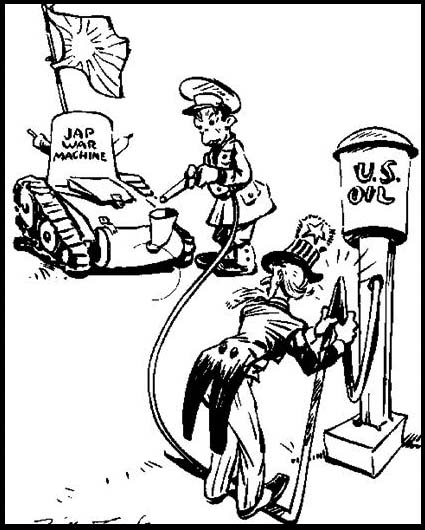
This information is not new. Every historian admits these basic facts. We know that FDR intentionally crippled Japan’s economy. We know FDR slapped Japan with costly sanctions. We know FDR cut off Japan from its money supply and from international trade. We know that FDR applied pressure on Asian nations to not do business with Japan. What court historians taken for granted, however, is the reason FDR took these provocative steps. They couch it as a last-ditch effort to stop Japan’s murderous aggression. In reality, these policies purposefully provoked war between nations whose peoples had no bone to pick with each other in order to meet sinister ends that will be noted later.
Japanese writers at the time pointed to the intolerable political and economic pressure applied on Japan by the United States and Britain as prominent reasons why the war eventually happened. Along with relentless economic warfare, the United States leveled endless propaganda against the Empire of the Rising Sun – propaganda which is mindlessly repeated by politicians, school teachers, the media, Hollywood, and Establishment historians even today.
In the early 20th Century, Japan was far and away the most technologically, economically, and militarily advanced Asian nation. They projected a vision of an independent Asia that looked beyond traditional racial and ethnic hostilities and promoted the greater good of the entire region. They created the aptly-named Greater East Asia Co-Prosperity Sphere to promote their vision of an Asia free from Western intervention and free from economic strangulation. In short, they desired a unified Asian brotherhood of economically and politically independent nations.
This course of action naturally led Japan into the arms of Hitler’s Germany which promoted a similar, albeit European version, of the same goal. The two nations shared a very similar ideological outlook. They believed in nationalism, self-determination, and the end of the internationalist Establishment’s chokehold on world affairs and the global economy. They also believed that their position of power in their regions – each being the most advanced nation in their individual spheres – gave them the responsibility to led out in overthrowing those forces which oppressed them and in establishing regional peace and stability.
To strengthen their respective efforts, Germany, Japan, and Italy concluded the Tripartite Pact on September 27, 1940. This followed their signing of the Anti-Comintern Pact, which will be discussed in the next section. The Japanese writer Nobumasa Suyetsugu explained the goal of the Tripartite Pact and why the West’s objections to it were totally unfounded. In November 1940, he wrote:
“[T]he Japanese-German-Italian pact is not directed against any other particular Power, nor is it to be construed in any way as having been concluded for the purpose of waging war against any one particular Power. . . .
“Then what has brought about this agreement? It is the outcome of mutual ideological antagonism between those Powers which seeks to maintain the old political, economic and other structures and those which are dissatisfied with the injustice of the old order and are determined to bring about a fundamental reform in the existing international and national structures. Recent intensification of this antagonism has been so great that it finally lead to the conclusion of the treaty in question as nothing but a natural outcome. The Powers upholding the old order virtually formed a league of their own, and, in order to preserve what they have, they kept opposing the rightful claims of the nations hitherto treated unfairly in international affairs. Consistent efforts were made to bring political and economic pressure to bear upon the latter countries. Finding their positions intolerable under the series of pressures, the reformist Powers felt that the only way of survival and future growth for them was in a firm combination on the basis of their ideological similarities. What actually has developed into the three Power pact, therefore, is the result of forced circumstances and was a historical necessity. . . .
“As has been mentioned, the special feature of the treaty is its ideological aspect . . . Heretofore, alliances and treaties have been based chiefly on the interests of the participants. When those interests faded the agreements were conveniently forgotten or openly discarded. Present treaty, of course, embodies the interests of the three signatories, but its fundamental spirit lies in the unity of thought and ideology. Therefore, it may be applied in complete disregard of the material interests of the participating parties as the occasion demands. Its overwhelming power and influence lie in the very fact that it was not signed for temporary gains or effects, but was conceived rather with a definite conception of human life and of the world and how men and nations should live therein . . . It is a concrete expression of the irrepressible demands inherent in the peoples of the three countries. . . .
“If the Japanese-German-Italian combination harboured any intention to bring the entire world under its control after the fashion of the Anglo-American Powers, which established and now are trying to maintain financial hegemony over the world, the mutual antagonism between the two groups inevitably would become stronger, regardless of the peaceful attitude of the former. That would mean merely replacing one kind of world hegemony for another. Happily, however, the objective of the tripartite pact, with its ideological origin, is not so aggressive as to attempt to bring the world within its grasp. It opposes emulating the Faults of the old order. The Pact has as its chief objective the establishment of the most natural geographic, economic and racial spheres and the liberation of the peoples of these respective regions from the shackles of controlling influences which heretofore have preyed on them from the outside. One cannot but be struck by the similarity between the present treaty and the position of the United States, which is doing its utmost to create solidarity among the nations of the American continents on the basis of Pan-Americanism and the Monroe Doctrine, although there is an admitted difference in the fundamental ideas. No one openly attacks the Monroe Doctrine as such, and it follows logically that there is no reason why the aims of the tripartite agreement should be made the butt of adverse criticism. As the pact envisions the establishment of a sphere of common prosperity in Greater East Asia, as well as the establishment of a new order in Europe under Germany and Italy, it would be well for its critics to postpone their unwarranted attacks until after they have exhausted their verbal ammunition against the Monroe Doctrine, lest their arguments sound hollow with inconsistency.
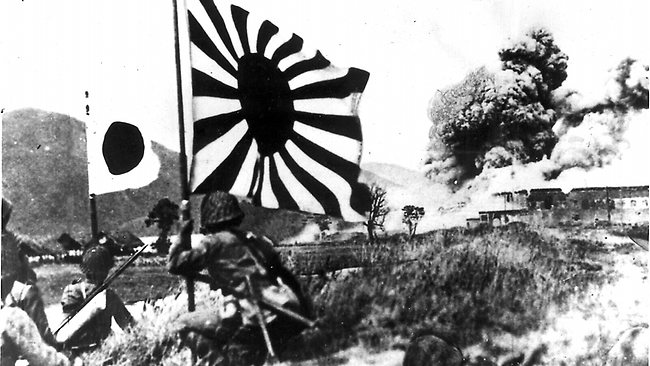
“It is regrettable that the world at present is wholly lacking in stability. War is the general order of things and peace is merely an ideal. Even in time of peace, there is hardly any sense of security among mankind and most nations prepare feverishly for the next war. Such conditions are suicidal for humanity. It would be good and well if peace and well-being could be secured for mankind. This can never be, however, until the old order of politics, entrenched as it is in financial control of the world and directed solely toward the continuation of such control, has been eradicated, because it constitutes the fundamental cause of world unrest. To do away with this old structure and restore world peace on a new and lasting foundation is the ultimate purpose of the three Power pact.
“Let us now consider the situation in Greater East Asia, whose people comprise more than half of the total world population. The Western plutocracies have forced their influence upon them and have caused them to suffer through the exercise of financial control. Under such conditions there never can be stability in East Asia. Without stability in East Asia, there can be no security for Asia at large and, consequently, the world in general cannot become tranquil . . . Properly speaking, territorial sovereignty should belong to the people who have inhabited the land for a long time. Seeds of trouble are sown when this sovereignty is usurped by outsiders . . . Unless these causes of trouble are removed, the chaotic condition of the world can never be remedied. . . .
“The Greater East Asia sphere of common prosperity, whose establishment we earnestly espouse, means nothing more than the restoration of the lands, peoples and sovereignties inherent to East Asia to their original and therefore natural status . . . Unfortunately, until recently its fulfilment has been prevented by various political, economic and diplomatic factors. But with the world turning toward an epochal change, the long pent-up demand has taken a practical turn. It is the role of the Japanese-German-Italian Treaty to mould and give definite shape to the aspirations of these peoples of East Asia for their satisfaction” (Nobamasu Suyetsugu, “The Three Power Pact,” in Joshua Blakeney, ed., Japan Bites Back: Documents Contextualizing Pearl Harbor, 216-223).
Please note that the Japanese viewed – mostly correctly, I might add – that the West’s economic interventionism in Asia had shackled the native nations. This was particularly true in China where Britain and the United States had launched unnecessary and highly immoral wars to force the Chinese regime to capitulate to their economic demands. Other nations had similarly caved to Western pressure and existed as mere vassal states at the start of the Second World War.
Additionally, Japan blasted the blatant distortions and lies about the purposes of their treaties with Germany. Japan, like Germany, sought to promote regional independence from internationalist forces – bankers, corporations, the Soviets, etc. They wanted Asia for Asians without outside interference, just as Germany wanted Europe for Europeans without foreign interference. Had the West – and the United States in particular – not foisted itself upon Asia and tried to check Japan’s Pan-Asianist efforts, it may have never felt the necessity of joining forces with Germany for survival.
As it turns out, FDR wanted Japan and Germany linked so that by initiating war against Japan, an excuse might be found to join the war against Germany which had scrupulously avoided and tolerated FDR’s provocations in order to avoid such a devastating conflict. This is called the “back door to war” strategy and has been copiously documented, despite Establishment cries of “false!” One of those to document FDR’s brazen path to world war was historian Charles C. Tansill who wrote Back Door to War: The Roosevelt Foreign Policy, 1933-1941. I leave you to do your own research and continue with the Japanese perspective on these tragic events.
In a lengthy article titled “Genesis of the Pacific War,” a Japanese writer confirmed the nature and aim of the Tripartite Pact with Germany and Italy:
“[B]y the terms of Article III of which the three Powers undertook to “assist one another with all political, economic and military means, if one of the High Contracting Parties should be attacked by a Power not at present involved in the European war or in the Sino-Japanese conflict.” From this stipulation, one can clearly see that the three Powers did not wish to have any third Power intervene either in the European war or in the China affair. The then Foreign Minister Yosuke Matsuoka referring to the Tripartite Axis Pact said that “Japan does not challenge any country.” The Foreign Office spokesman affirmed: “It is a pact to end wars, not to start them.” Regarding the allegation of the United States that the Tripartite Pact was solely directed against it, Yosuke Matsuoka in his statement of October 10, 1940, made clear its implications, so far as Japan was concerned, in the following words:
““Japan wishes earnestly to bring about an all-around peace in China at the earliest possible date. No other people have been more eager than the Japanese to see peace restored between Japan and China. As a matter of fact Japan has been and is actually bending every effort to that end. The conclusion of this pact with Germany and Italy is in a way another attempt to achieve the same end . . . I might add that the Tripartite Pact has not been entered into with the intention of directing it “against” the United States, but it is, I should say, directed, if at all, “for” the United States. To state frankly, the parties to the pact wish earnestly that such a powerful nation as the United States in particular and all other nations at present remaining neutral will not be involved in the European war, or come by any chance into conflict with Japan because of the China affair or otherwise. Such an eventuality, with all the possibility of bringing an awful catastrophe upon humanity, is enough to make one shudder if one stops to imagine the consequences. In short, the pact is a pact of peace.”
“President Roosevelt, however, in his fireside chat on December 29, 1940, assailed the Tripartite Pact in scathing terms. He persisted that “the three totalitarian Powers have, by the pact of September 27, 1940, joined together in the threat that if the United States interfered with or blocked their expansion programme, a programme aimed at world control, they will united in military action against the United States”” (“Genesis of the Pacific War,” in Joshua Blakeney, ed., Japan Bites Back, 310-312).
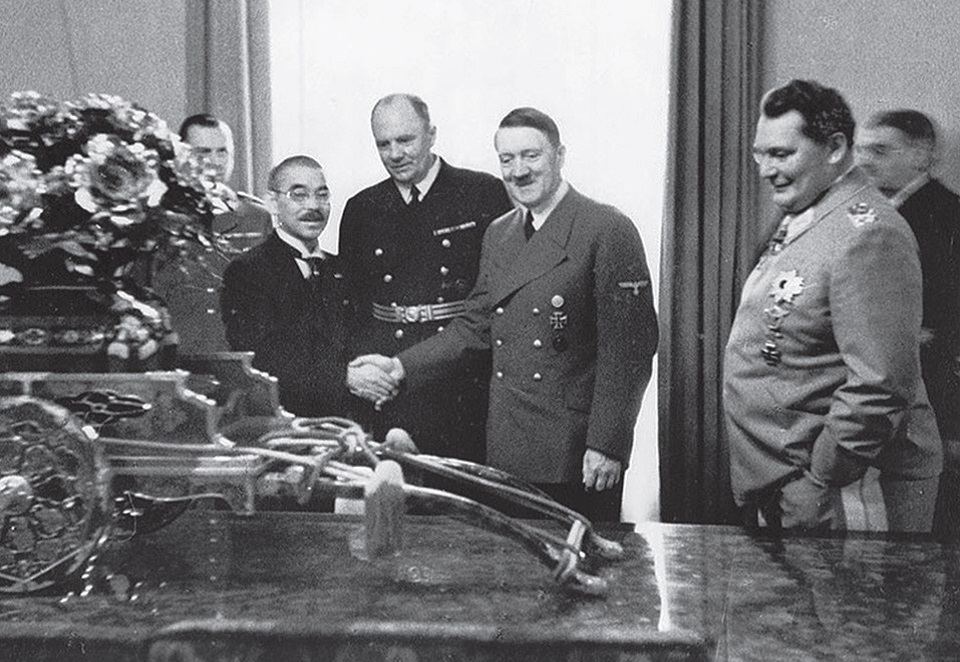
Truly, the Tripartite Pact would have proved a benefit to the United States had we remained neutral. The Axis powers would have obliterated the Soviet Union, prevented China from turning communist, and secured both Europe and Asia as safe zones outside the control of international bankers and fraudsters. As it turns out, our leaders were part of the internationalist cabal and chose a radically different course. The author listed just a few of FDR’s provocations and efforts to undermine genuine stability and peace in Asia:
“On November 30, 1940, Wang Ching-wei and General Nobuyuki Abe, Japanese special envoy to Nanking, signed a treaty of basic relations between China and Japan. Four documents initialled, giving Japan the right to station troops in North China and Inner Mongolia “for defence against Communist activities” and naval units in China, besides making it obligatory on Japan to co-operate with China in the development of China’s resources, especially minerals “required for national defence.” In a joint declaration issued by Nanking, Tokyo, and Hsinking, Wang Ching-wei recognized the independence of Manchoukuo; Japan agreed to surrender its extra-territorial rights, as well as its concessions in China in consideration of China opening its territory to the domicile and business of Japanese subjects; China undertook to pay compensation for “damages to the rights and interests” of Japanese subjects caused by the hostilities; and Japan undertook to withdraw all its troops from China, except those in North China and Inner Mongolia, within two years from the date when general peace was restored and a state of war had ceased to exist. President Roosevelt, in order to advertize that this Sino-Japanese Basic Treaty could not prove a deterrent to the intervention of the United States in the affairs of East Asia, granted a new loan of $100,000,000 to Chiang Kai-shek. . . .
“The United States Government, in addition to intensifying its assistance to Chiang Kai-shek against Japan and embargoing the export of raw materials to Japan, started the building of a “two-ocean” Navy. . . .
“Evidently President Roosevelt believed that if the supply of oil to Japan were cut off the war was inevitable. And two days afterwards, on July 26, 1941, he issued an order “freezing” all Japanese assets in the United States, thus stopping all trade relations with Japan, including the sale of oil. The Army Department announced on the same day that all troops under the Hawaiian Command had been ordered to be placed “on a training and precautionary alert status” at once. It was also announced that the President had created a new Army Command known as the U.S. Army Forces in the Far East. It would include 75,000 American troops and about 180,000 Filipino armed forces. Obviously President Roosevelt decided in favour of a war with Japan at the time when he issued the freezing order . . . Concurrently with the freezing of Japanese assets in America, the British Empire and the Dutch administration in Batavia took similar actions against Japan in their respective zones. Thus eighty per cent. of the export and import trade of this country was brought to a standstill at a moment’s notice . . . It needs no amplification to assert that this excessive Anglo-American move virtually amounts to the strangulation of the whole Japanese nation” (Blakeney, ed., Japan Bites Back, 312-314, 322-323).
Largely because of these provocations and acts of economic sabotage, Japan lashed out against America, turning FDR’s political-economic war into a shooting war. Pursuant to the Tripartite Pact, Hitler declared war against the United States on December 11. In his remarkable speech, Hitler stated:
“I cannot be insulted by Roosevelt for I consider him mad just as Wilson was. I don’t need to mention what this man has done for years in the same way against Japan. First he incites war then falsifies the causes, then odiously wraps himself in a cloak of Christian hypocrisy and slowly but surely leads mankind to war, not without calling God to witness the honesty of his attack – in the approved manner of an old Freemason. I think you have all found it a relief that now, at last, one State has been the first to take the step of protest against his historically unique and shame less ill-treatment of truth, and of right – which protest this man has desired and about which he cannot complain. The fact that the Japanese Government, which has been negotiating for years with this man, has at last become tired of being mocked by him in such an unworthy way, fills us all, the German people, and think, all other decent people in the world, with deep satisfaction. . . .
“As a consequence of the further extension of President Roosevelt’s policy, which is aimed at unrestricted world domination and dictatorship the U.S.A. together with England have not hesitated from using any means to dispute the rights of the German, Italian and Japanese nations to the basis of their natural existence. The Governments of the U.S.A. and of England have therefore resisted, not only now but also for all time, every just understanding meant to bring about a better New Order in the world. Since the beginning of the war the American President, Roosevelt, has been guilty of a series of the worst crimes against international law; illegal seizure of ships and other property of German and Italian nationals were coupled with the threat to, and looting of, those who were deprived of their liberty by being interned. Roosevelt’s ever increasing attacks finally went so far that he ordered the American Navy to attack everywhere ships under the German and Italian flags, and to sink them – this in gross violation of international law. American ministers boasted of having destroyed German submarines in this criminal way. German and Italian merchantships were attacked by American cruisers, captured and their crews imprisoned. With no attempt at an official denial there has now been revealed in America President Roosevelt’s plan by which, at the latest in 1943, Germany and Italy were to be attacked in Europe by military means. In this way the sincere efforts of Germany and Italy to prevent an extension of the war and to maintain relations with the U.S.A. in spite of the unbearable provocations which have been carried on for years by President Roosevelt, have been frustrated. Germany and Italy have been finally compelled, in view of this, and in loyalty to the Tri-Partite act, to carry on the struggle against the U.S.A. and England jointly and side by side with Japan for the defense and thus for the maintenance of the liberty and independence of their nations and empires.”
To recap, one of the two major reasons why the Japanese felt compelled to strike the United States at Pearl Harbor on December 7, 1941, was to end the U.S. stranglehold on Japan’s economy and resources. FDR deliberately undercut Japan’s resources – most importantly, steel and oil – and cut off Japan from her international monetary assets. These acts of economic warfare compelled Japan to either submit to internationalist political demands, allow their nation to be bankrupted and economically impoverished, or fight for a chance of survival. They chose, as any respectable nation would, to fight rather than slavishly submit to a hostile foreign power.
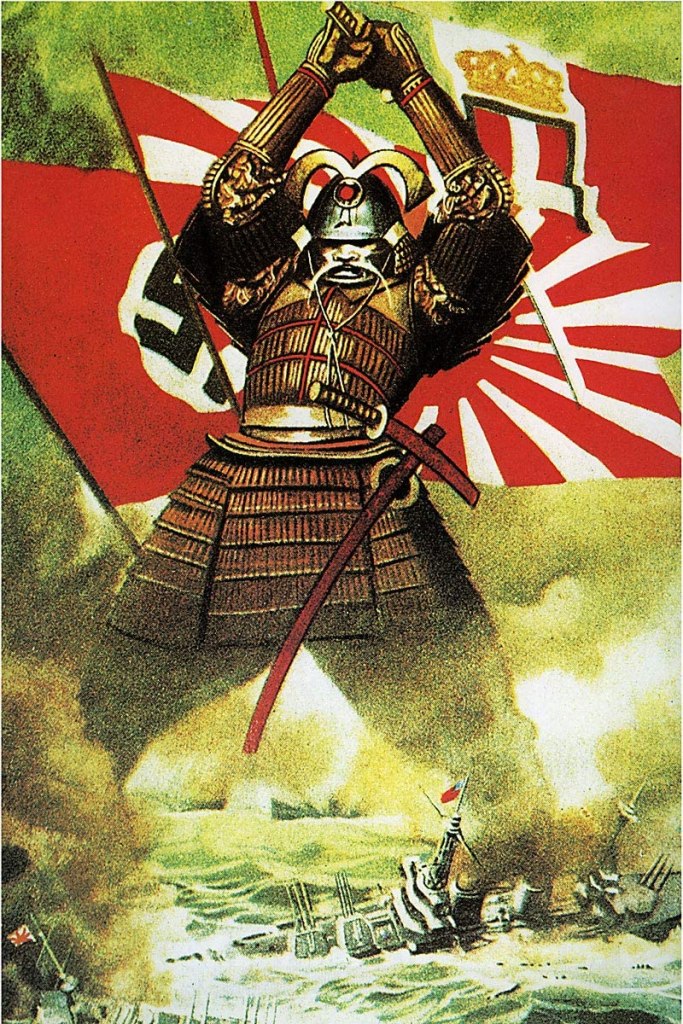
The Threat of Communism
I’ve covered the communist origins of World War II in my various writings and podcasts for years, such as in chapter eleven of my book A Century of Red, in my article “Victory Day – For Whom?” and in my Liberty Wolf podcast episode titled “Who Really Started World War II?” The Reds and their Western allies on Wall Street, in banking, and in government from London to Washington, prodded and provoked and manipulated events in Europe, Asia, and America until they sparked a global conflagration that furthered their agenda of world revolution. After overthrowing the Russian government, this international cabal used the Soviet Union – and the resources that poured into it from Western sympathizers and co-conspirators in the “capitalist” world – as a base of operations. From this base, they launched coups, wars, and uprisings in Spain, Hungary, Germany, Mexico, China, and beyond. It is the Soviet thrust into China that particularly concerns us today.
In his September 1938 article “Japan’s Continental Policy,” Katsuji Inahara explained that Japan was deeply worried about the encroachments of communism into China and the Asian mainland. It was, he said, their #1 foreign policy concern. Peace and stability on the mainland – especially with China and Russia – was paramount to the Japanese leaders and strategists. He thus reasoned:
“Many factors determine a nation’s foreign policy, of which the most fundamental is probably its geographical position. . . .
“. . . it should be easy to understand from Japan’s proximity to the mainland of Asia why she is so vitally interested in what takes place there. Willingly or not, she is bound to see to it that no strong foreign Power should dominate the mainland in order to ensure her own peace, or even her very existence. Therefore Japan cannot remain indifferent to the conditions prevailing in Russia and China and to the activities of these two countries . . . The governing factor in the relations between Japan and the mainland of Asia has always been the problem of security, and must always be so. . . .
“It was for no other reason than to ensure her national safety that Japan fought China in 1894-5 and Russia in 1904-5. Indeed, it is impossible to find any outstanding event in Japan’s foreign policy that has not been affected by this fundamental attitude of hers towards the mainland. Far back under the Czars the ideal of Russia’s empire builders was the control of Eastern Asia; and although no newly instituted form of government ever went to such lengths in the overthrowing of the established order as the Soviet regime, the present government of Russia has not abandoned for one moment its interest in the Far East, despite declarations to the contrary made in the early stages of its accession to power. True, with replacement of Czarist diplomats by Soviet commissars, the methods may have changed, but the aim and substance of Russian diplomacy still remain the same. Not only that, but it would seem that Russian ideals have gathered a much greater momentum than under the Czars, so that the present dream of the Soviet in East Asia appears to be much more ambitious than that of Czarist Russia. For it is that of a Communist China, with its huge population of 400,000,000, accepting the direction of Moscow in carrying out its policies in the Far east.
“In the final analysis the present Sino-Japanese conflict springs from the twin root of Chinese Nationalism and Russian Communism. In the early stages of the Soviet rule, Moscow adopted what is known as the “Asia detour” policy, the purpose of which was to strike at Western Imperialism out in Asia. The first object of the Red machinations was Great Britain, as witness the virulent anti-British campaign in China in 1925-27. The extent to which Moscow was behind the Kuomintang in its anti-British agitation is shown by the fact that the party’s slogan was the denunciation of the exploitation of China by Western capitalism raised to a higher and more violent form than had ever been known before. It was by Moscow’s aid that Chiang Kai-shek and the Nationalist army were able, in 1926, to advance as far as the Yangtze Valley . . . The retreat of the British brought particular joy to the Chinese, for it was certainly an epoch-making event in the annals of China’s foreign relations, and so quite easily they succumbed to the dangerous illusion that, since such a powerful country as Great Britain had submitted to their threats of coercion, they could easily extort what they wanted from less powerful countries by similar methods.
“And so Japan became the next object of attack. . . .
“It is true that there was a rift in the Soviet-Nationalist combination in April, 1928, when Chiang Kai-shek staged a coup against the Left wing of the Kuomintang, the effect of which was to send Borodin and this comrades scurrying back to Moscow. Nevertheless, the Soviet ferment had already had enough time to permeate no small section of the Chinese people, so much indeed that it had taken practical shape in the formation of Chinese Communist armies. These Red forces Chiang Kai-shek had to tackle, but only with little success. For the Communist armies, under native leaders but assisted by Russian advisers, moved northward and established contact with the Soviet forces in Outer Mongolia, which, in fact, if not in name, is Soviet territory.
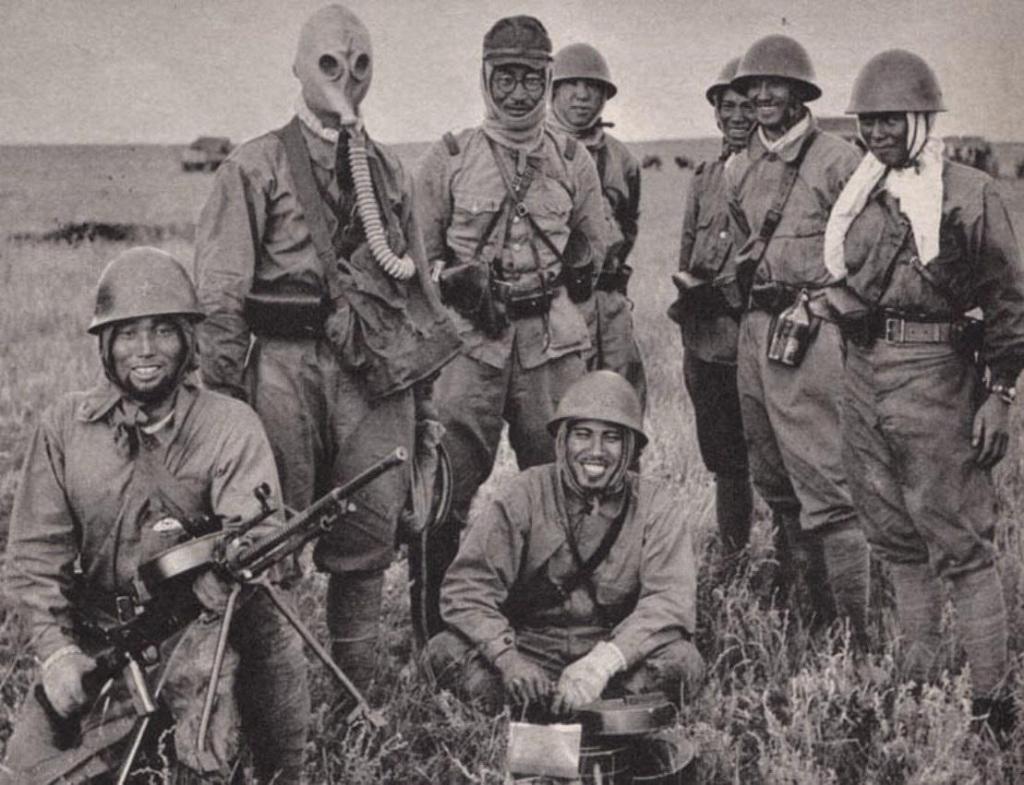
“Despite the temporary setback following on Chiang’s coup, Moscow, never wavered in its faith in Communist China. It knew how to bide its time, until the coveted opportunity arrived at last in December, 1936, in the shape of the Sian episode . . . as a result of the episode, the Soviet-Nationalist entente was reestablished. The common front on which this reunion was achieved was expressed by the slogan “Fight Japan!” . . . Prior to the Russo-Japanese war Russia had been able to hoodwink the world by means of a secret treaty of alliance signed with China on the strength of which she flooded Manchuria with Russian troops. Now the same thing had come to pass again, though on a much larger scale . . . Moreover, just as her apprehensions regarding Czarist Russia drove Japan to enter into an alliance with Great Britain in 1902, so the danger of Soviet aggression drove her to see an anti-Comintern pact with Germany in November, 1937.
“The present Sino-Japanese conflict started on July 7, 1937, when Chinese forces, at Marco Polo Bridge near Peking, made an attack on the Japanese troops stationed there in accordance with the Boxer protocol. . . .
“The war aim of Japan in the current conflict is the establishment of peace on the mainland and security in East Asia. . . .
“The peace and safety – security in one word – of a nation signifies something more than the mere preservation of its homeland or even of its territories beyond the seas from external attack. This is only the beginning of security. Real security must also include the maintenance of its economic interests so that it may be able to feed its people. . . .
“Geographical and political necessity as well as historical association impels Japan to take due note of whatever happens on the continent of Asia. She has always to be on the watch against anything inimical to her existence that might arise there. Thus, in the final analysis, she has either to help shape events on the mainland or else herself become the passive victim of those events. . . .
“When the Japanese talk of national safety in relation to the continent of Asia, they more usually have Russia in mind than China as a possible menace. “While the Communist creed and Communist propaganda,” observes a writer, “served to imbue Japan with deep distrust of Soviet Russia, it was not until 1929 that Russia once more loomed up as a serious military menace and to arouse Japanese anxiety on the score of national defence.” When Manchoukuo came into existence, the Japanese people thought that an effective dam against Russian inroads into this part of Asia had been set up. In thinking so, however, they were mistaken, for the march of events was such that the tableland of Mongolia, theoretically Chinese territory, was turned into a Russian province by means of Red activities. . . .
“. . . to all intents and purposes, Outer Mongolia is now Soviet territory, if not in name. And since a Power that controls Sinkiang and Mongolia also controls China, the Soviet domination of Mongolia constitutes a serious menace to the security of the Japanese position not only in Manchuria, but in Eastern Asia in general. Russia who was obliged to retreat beyond the Amur in Manchuria is now again casting a covetous eye upon it and Japan’s position there from across the Mongolian deserts. . . .
“What would happen if the stabilizing influence of Japan were to be withdrawn from Eastern Asia? In that event, Russia would be left the sole dominant Power in this part of the world. There would be nothing to check the Sovietization of China and finally of the whole of Asia, supposing that Russia does not forego her present policy of Red penetration. It would be difficult to see what benefit Britain or any other capitalist country would derive, if such a thing should come to pass. Japan, brought to her knees, would no longer be in a position to exert her influence as the one Power ready to check the extension of the Soviet system to East Asia. The present conflict in China is not solely between Japan and that country. It is in many respects a conflict between Capitalism and Communism. Could it be seriously maintained that the cause of real democracy is advanced by aiding and abetting Communism? Again, it should be borne in mind that any war between major capitalist Powers would only serve to benefit Communist Russia. . . .
“Germany and Japan have long been recognized as bulwarks against the advance of Communism in Europe and Asia. The pact signed between the two Powers in November, 1937, is directed against the machinations of the Comintern. . . .
“The issue of maintaining peace and prosperity in Eastern Asia is a vital one for this country, since its security largely and directly depends upon it. It is necessary, therefore, that Japan should fight for it when such becomes unavoidable” (Katsuji Inahara, “Japan’s Continental Policy,” in Blakeney, ed., Japan Bite Back, 85-92, 95, 162-164, 174-177).

What has been called the “revenge of geography” is a pressing reality for Japan. If you glance at a map, you find that the Korean Peninsula sticks out from the Asian mainland like an arm reaching towards Japan. In fact, the distance between Korean and Japanese territory is only about 31 miles at the narrowest point of the Korean Strait. The distance between Russia’s and Japan’s closest disputed islands today is so meager that you can stand on Japanese soil and view the Russian-held islands across the water. And, depending on which disputed point you judge by, Japan is a mere 400 miles from Chinese-claimed territory. In the 1930s and 40s, the distances were indeed longer, but still sufficiently close for Japan to keep their eyes riveted on the continent.
Think about it in context. If the Soviet Union and hostile China sat mere miles from the American mainland, would we go about our merry lives ignoring the threat, or would we be hypervigilant? Perhaps modern Americans would ignore the threat, as they’ve done with Cuba, but rational people would not – especially when their families and civilization are targeted for destruction. Rather, they would move to secure their borders, project strength outward, and reach out to stabilize their surroundings when necessary.
As pointed out earlier by one of the Japanese writers cited, the Japanese viewed their role in East Asia in a similar manner as Americans have traditionally viewed the Americas. Just as we issued the Monroe Doctrine for the legitimate protection of our own interests and to make this hemisphere one of Freedom and peace, so, too, did Japan declare a Greater East Asia Co-Prosperity Sphere and seek to thwart the advance of communism, liberate Asian nations from Western domination, and stabilize the region in order to protect the interests of all involved.
Japan has always been embroiled in controversy in Asia because of its proximity to the mainland. However, the rise of communism endowed the conflict with a greater sense of urgency and danger. Communism is the most murderous and treacherous system in world history. Nothing has ever equaled it in brutality and destructiveness. More people have been raped, pillaged, enslaved, dehumanized, and slaughtered by the Reds than by any other group or combination of groups in all of human history. Thus, when Japan saw communist banners being raised practically along its borders, it had to act decisively.
The Bolsheviks were smart and went after China first, knowing that the successful conquest of that great people would be sufficient to turn the rest of Asia Red. China had been beaten down, humiliated, and impoverished by the West. The Bolsheviks therefore agitated and stirred up hatred for the West among the Chinese populace. They promised the peasants a paradise if they would support the revolution. Ironically, it was only with the help of the hated West that China ultimately went communist, as I outlined in my article “The Great Betrayal – How China Turned Red.”
Before China descended into the hell of Maoist Marxism, however, Japan recognized the danger and attempted to thwart the plot. As Japan moved into China to safeguard the region against the communists, the international press – controlled by socialists and communists – excoriated Japan and claimed they were acting in unwarranted aggression. They also fabricated “atrocities,” just like they did against Germany. As always, communists flip the narrative and project their own guilt on their enemies and opponents.
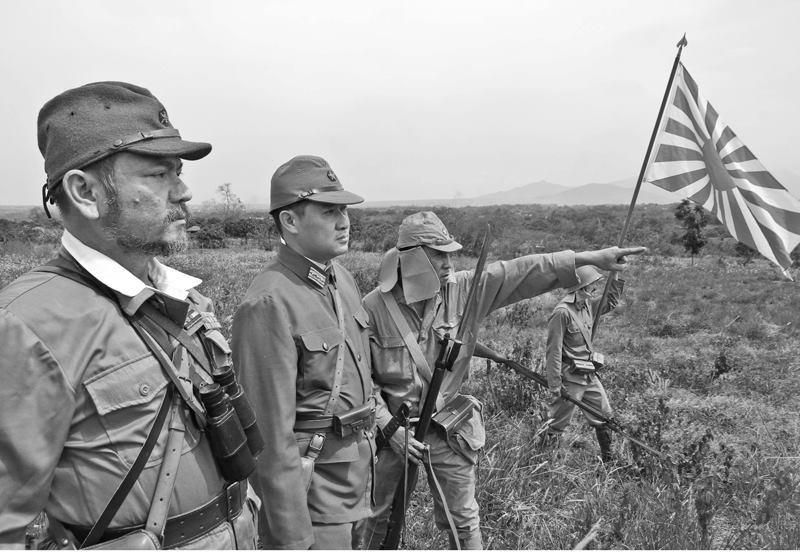
The Soviets waged a war of subversion, deception, and insurrection in China for decades before it finally succumbed, with crucial U.S. intervention and support, in 1949. During the struggle, communists controlled large swaths of China. One Japanese writer, writing in 1937, noted the massive communist infiltration into the Chinese government:
“Who governs China today? This may seem a strange question, but, none the less, it is an important one, since the answer to it will explain, as nothing else will, the genesis and true meaning of the present conflict. The answer that most people would make to the question is that General Chiang Kai-shek governs China, for to all appearances he reigns supreme at Nanking. But, as is so often the case, appearances are deceptive. As a matter of fact, it is not he, but the extremist elements of the Kuomintang Party allied to the Communists that actually hold the reins of power both at Nanking and all over the country.
“To give a brief historical summary, it was some twenty-five years ago that Sun Yat-sen administered the final push to the tottering structure of the Chinese Empire. Thus the National Party entered into power, but it experienced grave difficulties in coping with powerful warlords. In its emergency, the Kremlin came to its assistance. This was in 1927.
“Evidently Russia saw here a supreme opportunity of bolshevizing China, or, at the least, of throwing out of gear the international machinery working there. . . .
“With the aid of Russian men and money the National Party was able to overcome its opponents, but when Chiang Kai-shek felt that he and his party were well entrenched in power he broke away from his Communist associates, including Borodin and Galen (Bluecher), who had been serving him as supreme political and military adviser respectively. Thus, for the time being the bond between Nanking and Moscow was severed.
“It was very soon destined to be renewed, however. The Seventh World Congress of the Comintern held at Moscow in 1935 decided upon a reorganization of its methods. Propaganda in favor of direct revolution was abandoned and in its place the more indirect method of rallying the radicals and socialists in various countries into a People’s Front, which would seize control of their respective governments and thus eventually consummate the revolution. Moreover, Poland and Japan were singled out as the two countries against which special efforts should be made. The Chinese Communists carried out thoroughly the instructions received, and began to win the people of China to their side by means of the slogan, “Fight Japan!” . . . .
“Since the mainspring of this combination is complete anti-Japanism, it is not difficult to realize how it is that the little incident in Lukouchiao has been so quickly magnified into the conflict of the present scale” (“The Sino-Japanese Conflict: A Short Survey,” in Joshua Blakeney, ed., Japan Bites Back, 43-45).
Almost inevitably when you research deeply into modern conflicts, you find communists lurking somewhere near. Their Red fingers have been in everything from world wars to national uprisings to local strikes to assassinations to drug pushing. Their subversive movement is of course aimed at all nations. However, in the 20th Century, three nations gave them a particular headache and nearly derailed their conspiracy altogether. I speak of Germany, Japan, and Italy.
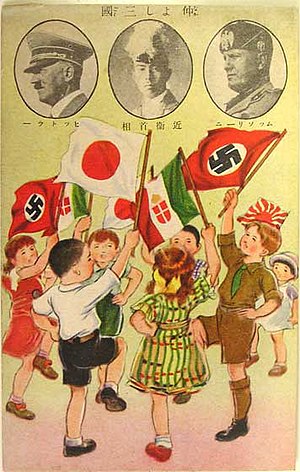
Isn’t it curious that these three nations – the three which openly entered into an anti-communist pact and swore to fight the spread of communism – are the three which are most heatedly attacked, smeared, and held up as the epitome of evil in the controlled press, Hollywood, and centers of indoctrination we call schools and universities? On November 25, 1936, Germany and Japan, followed later by Italy, concluded the Anti-Comintern Pact. The Comintern was the international wing of the communist conspiracy. On orders from Moscow, it directed the revolutionary activities in individual countries throughout the world using homegrown communists advised and aided by Soviets.
Understanding this subversive machinery and the dire threat it posed, Germany and Japan signed the Anti-Comintern Pact which read in part:
“The Imperial Government of Japan and the Government of Germany,
“In cognizance of the fact that the object of the Communistic International (the so-called Komintern) is the disintegration of, and the commission of violence against, existing States by the exercise of all means at its command,
“Believing that the toleration of interference by the Communistic International in the internal affairs of nations not only endangers their internal peace and social welfare, but threatens the general peace of the world,
“Desiring to co-operate for defense against communistic disintegration, have agreed as follows.”
Among the things Germany and Japan agreed to were to “keep each other informed” of the Comintern’s activities, carry out defensive measures “in close co-operation,” and to “jointly” help other states “whose internal peace is menaced by the disintegrating work of the Communistic International.” It boggles the mind why a nation like the United States would not approve of such a treaty and give their blessing to Germany, Japan, and, later, Italy. Is it not in our best interest for the communist conspiracy to forever go out of existence? Do we not claim to be the chief rivals of the communists?
Sadly, in the run-up to World War II, a Marxist named Franklin Delano Roosevelt ruled in the White House instead of a true patriot who actually gave a damn about his country. FDR – Wall Street’s man – loved mass-murderer Joseph Stalin, affectionately calling him “Uncle Joe.” FDR’s administration made the United States the first major nation to recognize the barbaric Soviet regime of robbers and revolutionaries as a “legitimate” government, thus giving a massive boost to the Soviet economy and prestige. FDR surrounded himself by known Soviet moles, such as his closest adviser Harry Hopkins, Alger Hiss, and Harry Dexter White who helped trigger Pearl Harbor, as well as rabid Zionist agitators like Henry Morgenthau, Jr. and Bernard Baruch. FDR was the biggest traitor to ever sit in the White House and the world suffered greatly because of his influence.
Adolf Hitler was likely the most virulently anti-communist head of state in history. His National Socialist movement won favor with the German people precisely because of their anti-communist platform. Hitler banished communists, Freemasons, international bankers, occultists, and other such criminals from his country when he came to power in 1933. After six years of constant anti-Germany agitation, internationalist forces – led by Zionists and Soviet communists in Britain, France, Russia, Poland, and, yes, the United States – again plunged Germany into a war that she did not wish to fight.

As Germany defended herself against the Western powers, the Soviet Union gleefully prepared an invasion of its own, scheduled for 1941. Stalin planned to crush Germany and become sole hegemon of the continent. Knowing of the scheme, Hitler preempted him by launching Operation Barbarossa. Stalin knew that Hitler would attack when threatened, but he believed he would be the first on the trigger. Fortunately for the world, Hitler struck first – catching the Soviet Union off guard and routing them all the way back to the suburbs of Moscow.
Why am I talking about the German-Soviet war in an article about Pearl Harbor? Simple: FDR pushed his provocations against Japan into overdrive after Germany struck the USSR. FDR wanted to spark a war with Japan to have an excuse to fight Japan’s ally, Germany, and save his beloved Soviet comrades from the jaws of defeat. You will recall that it was in the summer of 1941, just after the Germans hit the Soviets and were well on their way to victory, that FDR froze Japan’s economic assets, bankrupted their nation, and made war inevitable.
Soviet spies and agitators in America, including in FDR’s administration, harangued the president to quickly get in the war and save America’s Soviet “ally.” Incomprehensibly, FDR sent billions of dollars worth of equipment to Soviet Russia via the Lend-Lease program. When I lived in Russia, I personally spoke with a Red Army tanker who fought in the war who shared his conviction that without American tanks and materiel, the USSR would have crumbled. I believe he is right. To our eternal shame, the United States saved the Soviet Union – we saved Joseph Stalin and his murderous gangsters from justice!
In order to save the communist mass murderers, FDR sacrificed over two-thousand American lives at Pearl Harbor. He waged economic warfare against Japan and backed communist operations in Asia until Japan, feeling the hurt of bankruptcy and the looming threat of communism on their frontier, felt it had no other option but to retaliate with force. This is the real story of why the Japanese struck Pearl Harbor that fateful day 79 years ago.
I believe the evidence forces us to acknowledge the truthfulness of Emperor Hirohito’s December 8, 1941 declaration of war. He affirmed:
“To insure the solidity of these ages and contribute to world peace is the far-sighted policy which was formulated by our great, illustrious, imperial grandsire and our great imperial sire’s experience, and which we lay constantly to heart; to cultivate friendship among nations and to enjoy prosperity in common with all nations – has always been the guiding principle of our empire’s foreign policy.
“It has been unavoidable and far from our wishes that our empire has been brought to cross swords with America and Britain.
“More than four years have passed since China, failing to comprehend the true intentions of our empire, and recklessly causing trouble, disturbed the peace of East Asia and compelled our empire to take up arms.
“Although there has been re-established the National government of China, with which Japan has effected neighborly intercourse and co-operation, the regime which has survived at Chungking, relying upon American and British protection still continues its opposition.
“Eager for the realization of their inordinate ambitions to dominate the Orient, both America and Britain, supporting the Chungking regime, have aggravated disturbances in East Asia. Moreover, these two powers, inducing other countries to follow suit, increased military preparations on all sides of our empire to challenge us. They have obstructed by every means our peaceful commerce and finally resorted to direct severance of economic relations, menacing gravely the existence of our empire.
“Patiently have we waited and long have we endured in the hope that our government might retrieve the situation in peace.
“But our adversaries, showing not the least spirit of conciliation, have unduly delayed a settlement, and in the meantime they have intensified the economic and political pressure to compel thereby our empire to submission.
“This turn of affairs would, if left unchecked, not only nullify our empire’s efforts of many years for the sake of the stabilization of East Asia, but also endanger the very existence of our nation.
“The situation being such as it is our empire, for its existence and self-defense, has no other recourse but to appeal to arms and to crush every obstacle in its path.”
While I’m truly saddened at the loss of so many fine American men at Pearl Harbor on December 7, 1941, and honor them for their willingness to sacrifice for their country, I cannot condemn and blame Japan – a nation which we had harassed and waged economic war against for years. Those men did not need to die at Pearl Harbor. FDR sacrificed them on the altar of the global communist conspiracy. All of the pain and loss and tragedy must be laid at FDR’s feet and at the feet of those in America who voted for FDR and turned a blind eye to his treasonous treachery.
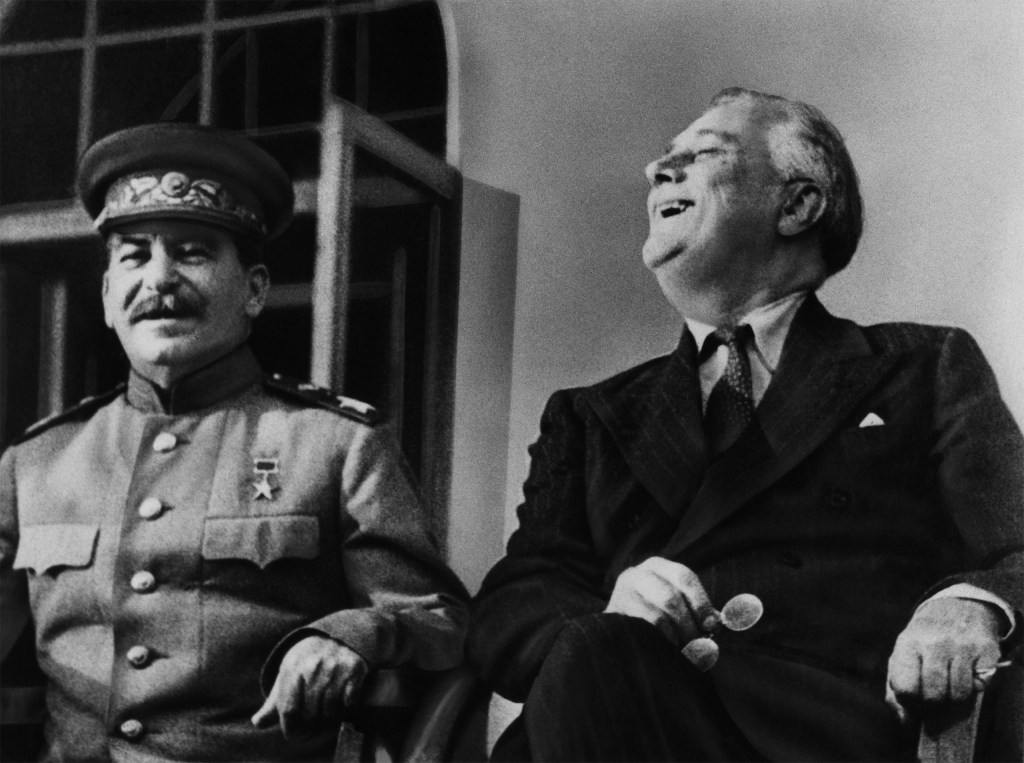
Remember Pearl Harbor and honor the men we lost. But also remember who was responsible. Remember that FDR and his fellow communists at home and abroad coordinated their plans to pressure Japan into attacking us so that we could fight Germany and save the Soviet butchers from defeat. The court historians have tried to conceal this damning information for eight decades, but now you know the truth. Make it count.
Zack Strong,
December 7, 2020




